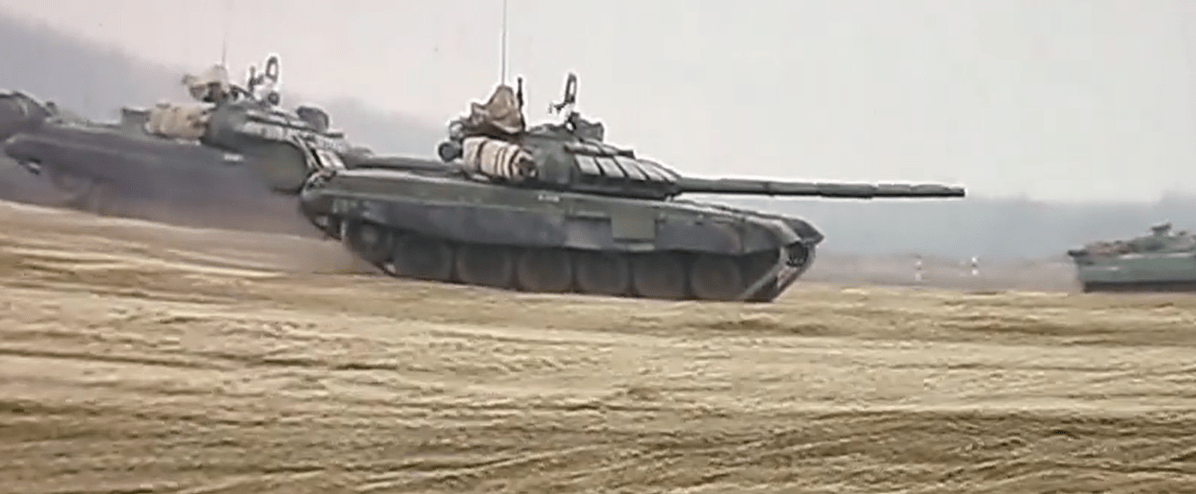Translated from the French Marxist newspaper La Riposte
It is totally futile to hope for a solution to the war in Ukraine through the United Nations, because it is an “international body” dominated by the same powers that are responsible for it.
As for the sending of weapons to Ukraine, that is, to a state entirely devoted to the selfish interests of the local oligarchy, it is not admissible in principle and is not even very useful militarily, especially since some of these weapons are in danger of being recovered by the Russian armed forces.
But then, what are the strategic options really open to the Ukrainian people, knowing that we exclude from this category the capitalist oligarchy that has bled the country blank for decades? Saying “no to war” is obviously correct, but it can only be a starting point if we are seriously looking for a way to end it.
Putin ordered the invasion of Ukraine to expand the sphere of influence – or more precisely control and power – of the Russian oligarchy he represents. But it will be neither the top brass of the army nor the capitalists who will face the mortal dangers of war. The tens of thousands of Russian soldiers, sent to Ukraine to kill and be killed, are not there by choice.
Daily demonstrations in Russia against the war
As the reality of their mission becomes clear, some of the troops will not endorse it. From the first day of the war, in Moscow, St. Petersburg and elsewhere, demonstrations against the war were organized daily. By the fifth day of the war, St. Petersburg police had recorded more than 7,000 arrests of peaceful protesters. Many were detained and often brutalized.
At MGIMO University, which trains future executives of the country’s political and administrative elite, 1200 students signed an open letter to Putin, written by a list of academics, writers, journalists, etc. They write that they are “categorically opposed to the Russian federation’s military action in Ukraine” and state that they considerit “morally unacceptable to stand discreet and remain silent while people are dying in a neighboring state. They are dying through the fault of those who preferred arms to peaceful diplomacy.” Despite the repression, opposition to the war grew and became emboldened.
Ukrainian soldiers, on the other hand – as well as civilians who organize and arm themselves as best they can to protect their families and homes – have also not chosen to find themselves in this situation. On both sides of the front lines, many soldiers and civilians must surely have cross-border family and emotional ties.
Between all the peoples of this region, there is as a social and historical continuity, a cultural and linguistic intermingling. They have no reason to see themselves as enemies. No, the organizers of this murderous madness, those who see an interest in it, are elsewhere: in palaces, in luxury villas, or at least far from danger. And it is there, in the class nature of this conflict, that lies the real key to its solution.
The battle for ideas and the morale of Russian troops
Ukrainian cities are bombed. Kherson is now in the hands of the invader. The capture of Kiev would be more difficult, but not impossible. Even if this happens, once his troops are in the cities, Putin may well find himself confronted with a phenomenon much more dangerous for him than weapons: the battle of ideas, the struggle for consciences.
The Russian soldier has his weapon, his sense of discipline, but he also has his conscience, his morals. One can very well imagine the Russian tanks and military units, in the squares and crossroads of Kiev, assailed by the arrests of Ukrainian citizens: Soldiers! What are you doing there? Do you really want to be part of this abject mission? Our neighborhoods are being bombed. Our homes are burning! Men, women and children, who have nothing to do with NATO, are being killed! Thousands of your comrades have also lost their lives in this madness! Why this war? In whose interest?
If ever the Russian armed forces manage to neutralize those of Ukraine and occupy Kiev, discussions of this kind and cases of fraternization may well occur, encouraged by the movement of opposition to the war in Russia. Often, in history, wars have carried within them the seeds of a revolution.
International repercussions will weaken Putin
This is also a possible perspective in the current war. It will change Russia and change Ukraine as well. The war and its international repercussions can only weaken the Putin regime in Russia, while in Ukraine, the humanitarian disaster and the social and economic collapse will brutally highlight the role of the oligarchy before and during the conflict.
Peace, democracy and the social emancipation of the peoples will be achievable only by the revolutionary questioning of the established order, by the overthrow of the oligarchies in both countries, by a movement towards the establishment of an independent, democratic and socialist Ukraine and the extension of this revolutionary movement towards Russia, for the overthrow not only of Putin, but of all the privileged and parasitic class it represents.
From the French Marxist newspaper and website La Riposte. The original can be found here.



